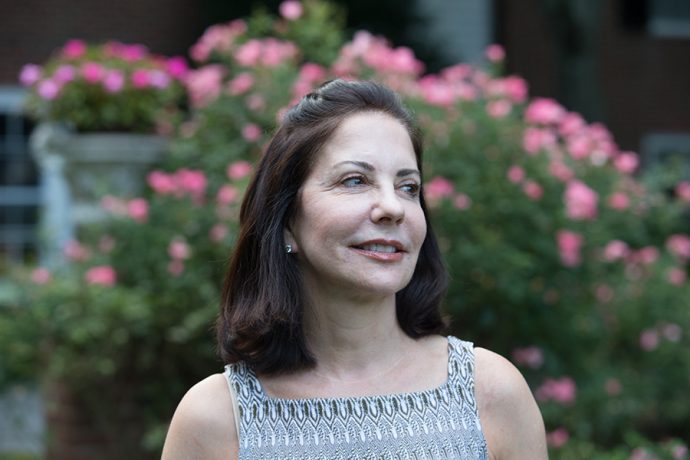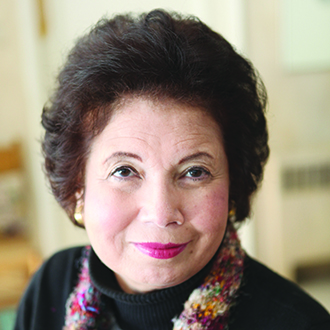Adolescence has always been a difficult stage in the journey through life but perhaps never more so than in today’s digital fishbowl.
Therese Rosenblatt, a psychologist who practices in Scarsdale and Manhattan, devotes a portion of that practice to helping young people sort through their problems. She says that the pressure they are under today can lead to anxiety and depression and a host of other issues, including hostile relations with parents, eating disorders and troubled peer relationships.
“I see my role as helping them to get back on a good developmental track,” she says. “When they come to me, they have sometimes had many setbacks. They need to learn to deal with their own inner issues and goals and learn healthy ways of broadening their perspectives. I try to lay out some options to help get relief and get them back on track to a more relaxed and fulfilling adolescence.”
A NEW WORLD FOR YOUNG PEOPLE
“Years ago, adults assumed all adolescents were happy simply because they were young,” Rosenblatt says. “But that is no longer the case. We realize that adolescents, who I classify from age 10 to mid-20s, are dealing with a lot of change both inside themselves and in the outside world. There is a tremendous pressure to become this perfect, achieving mini-adult and sometimes the tug of war between reality and expectations just causes a break.”
Rosenblatt says she believes most of her
patients know they are troubled and want help. “I am very moved by the number that work hard and use the therapy. Even with those that start out being resistant, I can sometimes find ways to engage them and break through, ultimately getting good results.”
Many of the pressures her young patients face come from society, with parental expectations trickling down to the kids, she says. “For an adolescent, dealing with this kind of outside pressure can be overwhelming. Many end up putting more pressure on themselves than is necessary. Societal pressure cannot be underestimated. Adolescents are expected to mature faster and younger in about every sphere of life.”
DIGITAL PRESSURES
The 24/7 internet poses additional challenges. “Adolescents are losing attention span and the ability to communicate effectively with others in the ‘real world.’ And kids expect instant results and feedback on almost everything. Many have lost the idea that sometimes others need time to think things over to come up with a coherent response.”
In the age of rapid reaction, dating has even greater pitfalls. “It they do not get an instant, positive response to a text, they think the worst and wonder what they said wrong,” she says. “This is unrealistic and increases their anxiety.”
But on the plus side, the digital world can be a blessing for the socially awkward. “They can make connections more easily, without meeting face-to-face and have a screen. Great social skills are not required and the pain of someone just disappearing into cyberspace is not as sharp as in reality.”
SCHEDULED TO DEATH
Over-scheduling is the enemy of us all, including adolescents.
“We have gotten to the point where it’s just too much,” Rosenblatt adds. “Today’s adolescents mimic tightly scheduled and stressed-out adults. Adolescents sometimes need to just do nothing, a skill which is almost nonexistent.”
Young people need time to play and to experiment with different sports and hobbies. “They need to see different ways of interacting in the world. Taking time to lie in a hammock and look up at the clouds can be a very good and healthy thing to do.”
Instead young people often seem on that quest for perfection that manifests itself not only in overachieving but an unrealistic body image.
“There’s so much in the media that it’s overwhelming to young people,” Rosenblatt says. “The ubiquitous images put on the pressure to conform and sometimes this leads to a need to control.”
Young people can develop eating disorders in an attempt to control their food intake, telling their parents to back off, that this is an area where they are in charge. “We have become a society where tremendous emphasis is placed on the female body and its beautification,” she says. Everything is about how young women look.”
Unrealistic body images — for boys as well as girls — are not the only threat to the young body. Rosenblatt sees substance abuse as a symptom rather than a cause. “Teens who engage in substance abuse simply do not feel valued. Many also feel that it is impossible to socialize without drinking. It is a reaction to the tremendous demand to be socially facile and many face it down with drugs or alcohol. Special counseling is required if this becomes more than a passing issue.”
Rosenblatt has extended her adolescent practice up into the mid-20s because she says so many young people need it. “In today’s world, maturation and development are very different from a few decades back. I am happy to treat young patients in a broad age range and feel that I get very good results with this approach.”





